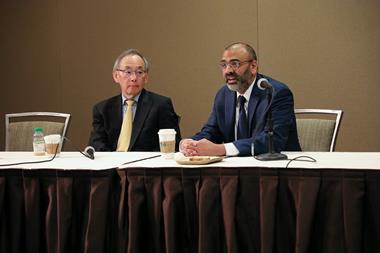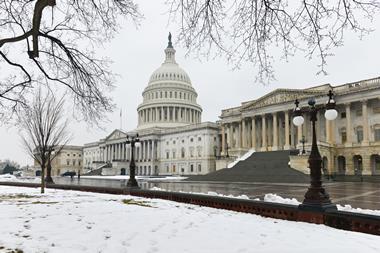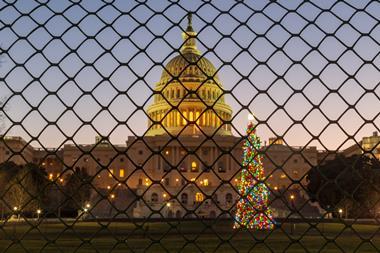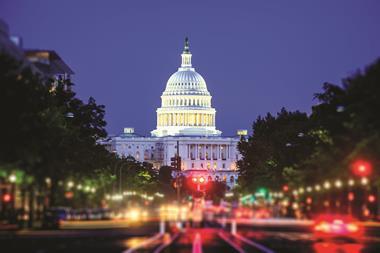The longest government shutdown in US history might be over, at least for now, but agencies like the National Science Foundation (NSF) are scrambling to catch up from the 35-day closure, and research universities are speaking out about the damage caused.
Before Christmas, the partial shutdown went into effect because of a standoff between Congress and President Trump over his demands for $5 billion (£3.8 billion) to build a wall along the US’s southern border with Mexico. As a result, about 90% of the NSF’s total workforce of 2100, was put on leave, including 1400 agency employees, 200 scientists on temporary duty from research institutions and 450 contract workers.
When the NSF finally reopened on 28 January, along with other agencies, its first priority was to ensure that the researchers it supports had access to their funds.
‘On a typical day, our grant payments are on the order of about $20 million,’ said Erwin Gianchandani, who manages the NSF’s computer information science and engineering directorate, during an NSF telephone briefing with the media on 2 February. That first day back in business, researchers requested approximately $220 million from the agency.
During the month-long closure, the NSF had to cancel 111 review panel meetings where nearly 2000 grant research proposals were to be vetted. Nearly 700 external reviewers were scheduled to participate in those panels. The agency is now beginning the process of rescheduling those review meetings.
‘It is a pretty complex juggling act, being able to ensure that we can get the original set of reviewers, or others in place of that original set, who are available on the same day or same set of days,’ Gianchandani stated. He said it could easily take a couple months to catch up. NSF actions on a given research proposal – like awards, declines, and funding disbursements – often occur weeks or even months after the review panels meet.
NSF director asks for patience
Once the NSF reopened, director France Córdova immediately issued a notice to the reseach community asking for patience. She said the agency will not be able to conduct ‘business as usual’ because its temporary funding only runs until 15 February.
The deal reached between the White House and Congress on 25 January reopened federal agencies for just three weeks to allow time for Congress to complete the fiscal year 2019 appropriations and reach an agreement on immigration and border security issues. President Trump has threatened to force another government shutdown if the negotiations fail, or to declare a national emergency to get his wall funded.
There is significant anxiety in the academic research community about the prospect of another shutdown. The University of Minnesota has calculated, for example, that the shutdown affected close to 1300 grants that are funded by agencies like the NSF and Nasa. Researchers at the university accrued approximately $10 million in expenses that went unreimbursed while those agencies were closed, the university said, and it estimated that every day that the shutdown persisted the tally grew by more than half a million dollars.
In the midst of this three-week window in which Congress needs to agree on how to handle the funding bills that haven’t yet been approved, more than a dozen members of the Association of Public and Land-Grant Universities (APLU) Council on Research descended on Capitol Hill to make their case on 29 February. These vice presidents of research at major US universities fear that the effects of the shutdown will extend far into the future.
‘There are going to be lasting impacts – drawdowns of funds, reviews of proposals, faculty that aren’t getting answers if their project will get renewed or even reviewed,’ said David Conover, vice president for research and innovation at the University Oregon, during an APLU media roundtable on 29 January. ‘I worry mostly about our youngest faculty on a tenure track whose careers depend on their ability to attract federal funding from these agencies,’ he added.
Sandra Brown, the vice chancellor for research at the University of California San Diego, stated at the APLU event that it is clear the shutdown has ‘taken a toll on the morale’ of graduate students and postdoctoral fellows on her campus. During the closure, at least 250 of the NSF’s independent postdoctoral research fellows at institutions across the country went without their stipends. Many suffered personally as well as professionally.
‘These young people are the workforce for our science and technology of the future,’ Brown stated. ‘We have individuals in these organisations that are talking about the viability of careers in science as a result of this on/off process.’

















No comments yet